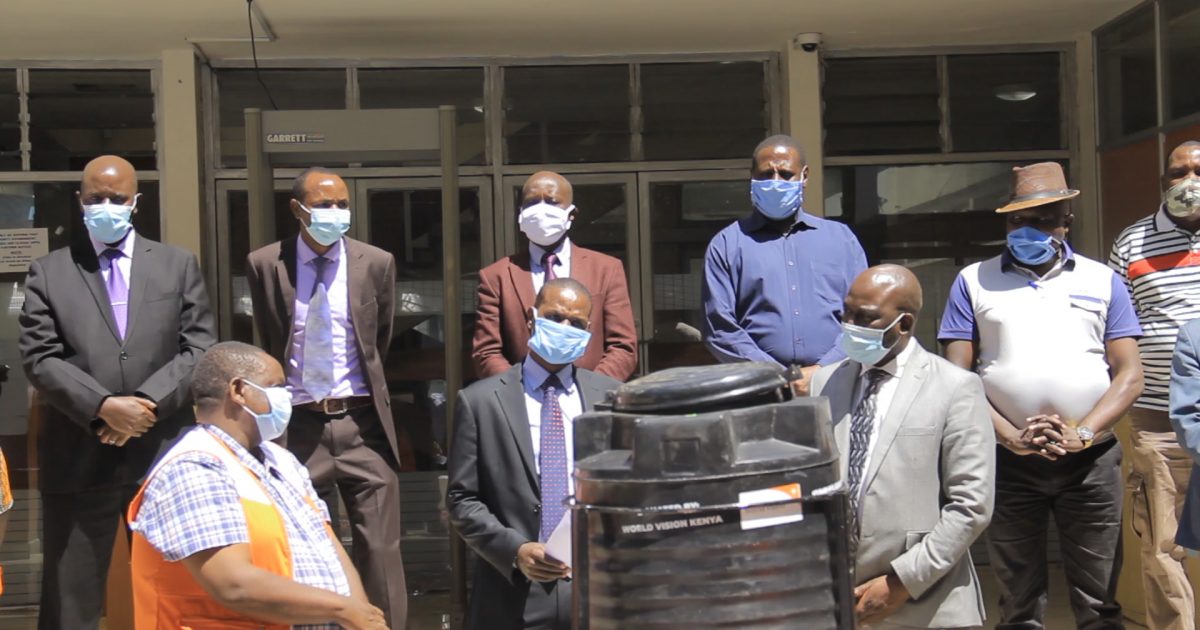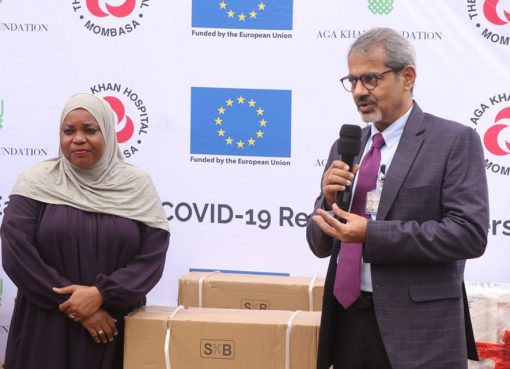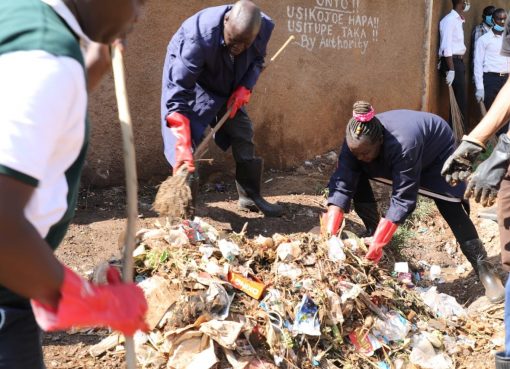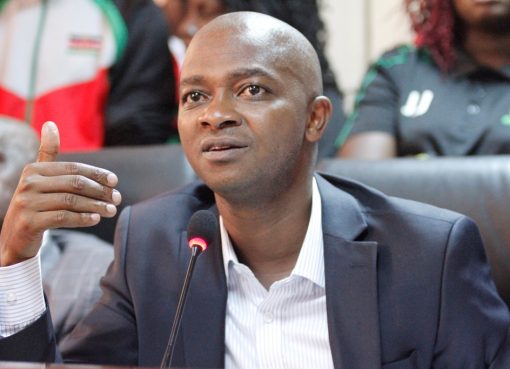The Nakuru County Government is partnering with the international humanitarian organisation- World Vision to initiate projects aimed at scaling up provision of safe water and sanitation facilities in low income areas within four Sub-Counties towards supporting the fight against Covid-19.
World Vision Kenya Project Manager Canary Njehia said the initiative was aimed at enhancing proper sanitation by setting up hand washing stations, reviving collapsed community water projects and donating hand washing facilities, including improvised pitchers to residents of Rongai, Subukia, Naivasha and Gilgil Sub-Counties.
Njehia who spoke when the organisation delivered a consignment of sanitisers, soap, water treatment chemicals and water containers to County Deputy Governor Dr Erick Korir said provision of safe water and sanitation materials particularly in low income areas and slums was essential in safeguarding human health during Covid-19 outbreak.
“In terms of lack of access to clean water at a time when the global call is for people to be more vigilant in terms of hygiene, they are also vulnerable because of water scarcity in many parts of low income areas,” stated the World Vision Project Manager.
County Executive Committee Member for Water, Engineer Festus Ng’eno who is also the Board Director and Vice-Chairperson at World Vision Kenya (WVK) said the devolved unit’s administration had increased its pool of funds to finance production of sanitisers and personal protective gear for medical personnel.
He revealed that Technical Vocational Education Training Institutions (TVETS) being run by the County were producing 55,000 protective masks on weekly which were being distributed to 55 wards.
Engineer Ng’eno said his department was complementing humanitarian efforts being undertaken by well-wishers and donor agencies in low income areas by increasing water points and kiosks that provide the commodity at a subsidised rate.
The CEC assured residents that Water Service Providers had adopted mechanisms to guarantee continued provision of safe sanitation services in the low income areas including putting measures in place to limit contamination of water by waste.
“We engage residents and community members who constantly inform us about sewer bursts and blockages and this will continue to be our top priority to improve sanitation in the region we cover,” said Engineer Ng’eno.
To ensure the workers of Water Service Provider are well protected while on duty, the Deputy Governor said the devolved unit had purchased Personal Protective Equipment to allow a seamless provision of service during the coronavirus outbreak.
The county has recorded two recoveries from the fast-spreading virus while the third case, a thirteen year old boy is in stable condition and undergoing treatment at the Isolation Ward at the Nakuru Level Five Hospital.
A survey on household drinking water, sanitation and hygiene by the United Nations Children’s Fund (Unicef) in 2017 found that only 25 per cent of Kenyans had access to a hand washing facility at home, that is, a place where they can wash with water and soap, a majority of whom were in urban areas (32 per cent). At least 35 per cent lacked soap with which to wash while 40 per cent had no hand washing facility at all.
The study took into account even the most rudimentary hand washing facilities, including improvised pitchers.
The survey also found that there are significant gaps between the rich and the poor in availability of basic hand washing facilities.
The inequalities spilt to the ability to wash hands as well, with only 27 per cent of the poor having basic access to clean water, which reduced to only 9 per cent for water that would be available for more than 30 minutes a day.
On the other hand, there was 89 per cent availability of water for the rich.
By Anne Mwale
Covid-19: County partners with World Vision to improve sanitation in low income areas





